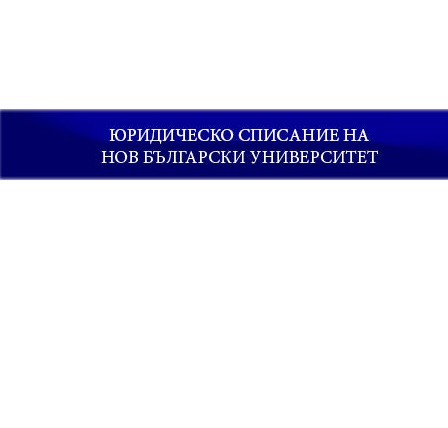Екологично законодателство. Екологични престъпления и новите промени в Наказателния кодекс
Environmental legislation. Ecological crimes and new changes to the Penal Code
Author(s): Anastasia Ignatova, Stanislav PetkovSubject(s): Politics / Political Sciences, Social Sciences, Education, Law, Constitution, Jurisprudence, Criminal Law, Civil Law, Public Law, Sociology, Higher Education , Criminology, Law on Economics
Published by: Нов български университет
Keywords: Environmental legislation; Ecological crimes; Penal Code
Summary/Abstract: In the evolution of legal protection of the environment we can distinguish two main historical periods. The first is that of the so-called Industrial Revolution from the beginning of the 19th century, and the second is the period of recovery after the Second World War, which lasted until the end of the seventies of the twentieth century. The relationship between economic development and the consumption of natural resources is very well known. It is also obvious that the more we develop the industry, trade and other economic sectors, the more resources are needed. Their systematic exhaustion and the imminent danger of permanent damage to nature are the reason for people around the world to think and take action. European countries are starting to create legislation aimed at protecting the environment, as we know it today at the beginning of the Industrial Revolution. These laws are part of civil and administrative law, their primary objective being to ensure the payment of satisfactory compensation in cases of pollution and to create a system for avoiding damage to the environment and protecting human health. At this early stage in the development of environmental law, it is not considered necessary to criminalize acts damaging to nature, as they themselves were not so prevalent.In the evolution of legal protection of the environment, we can distinguish two main historical periods. The first is that of the so-called Industrial Revolution from the beginning of the 19th century, and the second is the period of recovery after the Second World War, which lasted until the end of the seventies of the twentieth century. The relationship between economic development and the consumption of natural resources is well known. It is also obvious that the more we develop the industry, trade and other economic sectors, the more resources are needed. Their systematic exhaustion and the imminent danger of permanent damage to nature are the reason for people around the world to think and take action. European countries are starting to create legislation aimed at protecting the environment, as we know it today at the beginning of the Industrial Revolution. These laws are part of civil and administrative law, their primary objective being to ensure the payment of satisfactory compensation in cases of pollution and to create a system for avoiding damage to the environment and protecting human health. At this early stage in the development of environmental law, it is not considered necessary to criminalize acts damaging to nature, as they themselves were not so prevalent.
Journal: Юридическо списание на Нов български университет
- Issue Year: 2011
- Issue No: 1
- Page Range: 120-148
- Page Count: 28
- Language: Bulgarian

